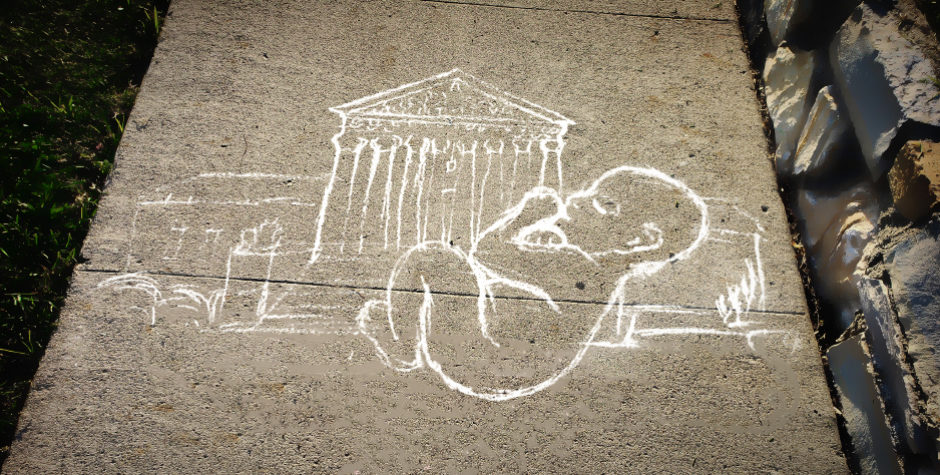The Battle for Free Speech: ACLJ To Take Sidewalk Counseling Case to the Supreme Court
The ongoing struggle to protect the fundamental right of free speech is vividly illustrated in the ACLJ case of Jeryl Turco v. City of Englewood, New Jersey. At the heart of this legal battle lies the question of whether buffer zones outside abortion facilities trample upon the rights of sidewalk counselors like our client, Jeryl Turco.
Since its inception, the ACLJ has championed the cause of defending free speech rights, particularly in the context of sidewalk counseling. Sidewalk counselors like Jeryl engage in quiet, one-on-one conversations with women seeking abortions, offering alternatives and support in times of crisis. Their approach is rooted in compassion and personal connection, aiming to provide information and assistance that women will not find inside the clinic.
In response to protests outside an abortion clinic in 2013, the City of Englewood took a heavy-handed measure. Instead of addressing the actions of the protestors in a narrowly tailored fashion, the City implemented no-speech zones, suppressing all speech activities—including Jeryl’s—outside health care and transitional facilities.
A legal battle ensued, with the ACLJ filing suit in 2014 asserting that Englewood’s buffer zone law was overly broad and infringed upon constitutionally protected speech. Invoking the Supreme Court’s decision in McCullen v. Coakley, which unanimously struck down a law virtually identical to Englewood’s, we argued that the City’s buffer zones stifled speech without sufficient justification.
Despite an initial victory at the trial court, the case took a turn for the worse when the Third Circuit Court of Appeals reversed the decision, leading to a bench trial in February 2022. Jeryl Turco testified about the practical challenges imposed by the buffer zones, while the City defended its actions citing alleged financial constraints and confidentiality concerns.
Disappointingly, in August 2022, the district court ruled in favor of the City, downplaying the impact of the buffer zones on Jeryl’s speech and accepting the City’s justifications. The ACLJ appealed the decision, arguing that the court’s findings of fact and conclusions of law were unsupportable.
Just last month, and relying on its previous (and erroneous) decision, the Third Circuit upheld the trial court’s ruling. Based on the Supreme Court’s decision in Hill v. Colorado, the court said that the eight-foot restriction on speech was no burden on Jeryl’s speech activities and that the City’s restrictions on speech were valid. The Third Circuit not only ignored much of Jeryl’s testimony at trial, but its reliance on Hill was woefully misplaced, to say the least.
In Dobbs v. Jackson Women’s Health Organization, where the Supreme Court overruled Roe v. Wade, the Court cited Hill as an example of how the alleged right to abortion has “distorted First Amendment doctrines.” Not only that, but in McCullen, the Court nowhere approvingly cited or reaffirmed Hill. In fact, the Court ignored that decision altogether.
In addition, the Third Circuit’s flawed decision makes no mention of the Sixth Circuit’s ruling in Sisters for Life v. Louisville-Jefferson County, a case where the ACLJ challenged a Louisville buffer zone law similar in scope and effect to Englewood’s. In a resounding win for the First Amendment, the Sixth Circuit held that Louisville’s law was too vast in scope and not narrowly tailored to protect core free speech activities.
We will now take Jeryl’s case to the Supreme Court and ask it to declare Englewood’s ordinance unconstitutional, just as the Court did for the sidewalk counselors in McCullen. The Third Circuit’s decision cannot be reconciled with the decisions of the Supreme Court, and it conflicts squarely with how the Sixth Circuit ruled in an identical First Amendment case. One of the most vital roles of the Supreme Court is resolving such conflicts, especially in matters of constitutional import.
As this legal battle continues, the ACLJ remains steadfast in its commitment to safeguarding the constitutional right to free speech. The outcome of this case will not only impact the rights of sidewalk counselors like Jeryl Turco but also set a precedent for the broader struggle to preserve free expression in public spaces. It is imperative that our courts defend the rights of individuals to peacefully express their beliefs, even in the face of disagreement or controversy. We trust the Supreme Court will do so here.
